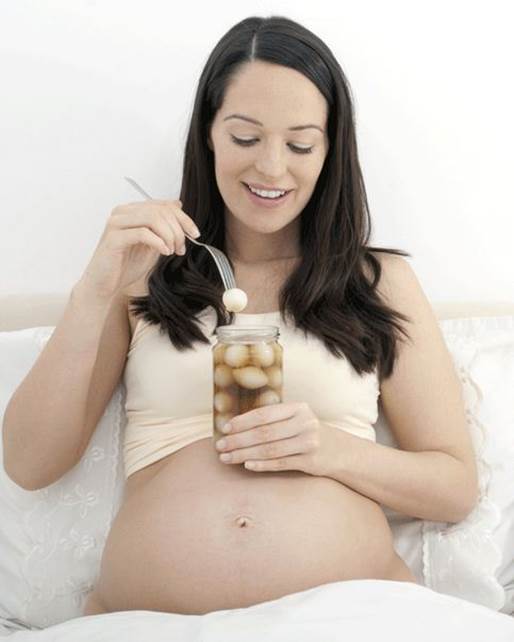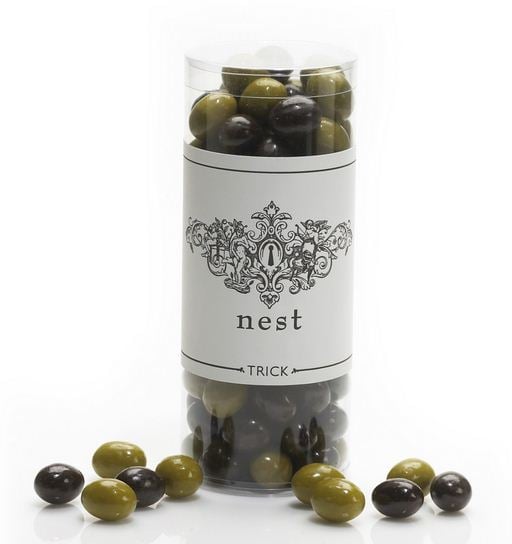Is it your body telling you what you
need or could it be just an excuse to tuck in?
Your baby at 3 months
Track your baby’s progress
Size: Your
tiny baby’s feet are almost 1cm long. From crown to rump, your baby grows from
about 2.5cm to about 7.5cm long (from about the size of an olive to a peach).
Progress:
The most dramatic development this month are your baby’s reflexes. Your baby’s
fingers will soon begin to open and close, his toes will curl, his eye muscles
will clench, and his mouth will make sucking movements.
Body: His
intestines, which have grown so fast that they protrude into the umbilical
cord, will start to move into his abdominal cavity about now, and his kidneys
will begin excreting urine into his bladder. His eyes have moved from the sides
to the front.

The
most dramatic development this month are your baby’s reflexes.
Your hormones are in a pickle, and you
can’t seem to explain why the roast chicken you once loved now makes you
squirm, or why you just can’t get enough of caramel flavored popcorn. Don’t
worry; it’s all quite normal.
Pregnancy cravings are bizarre, and largely
unexplainable – but up to 75 percent of pregnant women experience them. It may
be the body’s way of alerting us to nutritional deficiencies but often it’s
just plain comfort eating. If you crave something healthy, and broccoli or
cottage cheese is the only thing on your mind then by all means tuck in. But if
you, like many women, crave a rather large bowl of ice cream (with extra
sprinkles), then it may be time to reassess what these cravings mean, why you
shouldn’t always give in and how to find healthy alternatives.
Are my cravings real?
Has someone told you that your desire to
eat pickles and chocolate spread is a figment of your imagination? They’d be
wrong. Food cravings and food aversions during pregnancy are indeed a real
thing, says Johannesburg dietician Claire Julsing-Strydom. “They are powerful urges
that pregnant women experience to either eat certain foods or avoid them.
Common food aversions include coffee and other caffeinated drinks, meat and
alcohol. Food cravings often include sweets, dairy products and foods that are
quick to eat,” she says.

Food
cravings and food aversions during pregnancy are indeed a real thing
But the reason for these cravings and
aversions is not yet well understood. A possible cause is the hormonal and
emotional changes that occur in pregnancy, which can affect your taste buds and
reactions to food. This might explain why most women experience cravings in
their first trimester, when hormones play havoc on the body. Your cravings
should subside by the fourth month, so if they haven’t make sure to visit your
doctor. Another reason pregnant women may crave is for comfort, explains
Johannesburg dietician Lila Bruk. Pregnancy is a difficult time and everything
is new (if not a little daunting). Often women reach for the first available
pizza (or cupcake) to soothe their feelings.
Cravings are also a mechanism to deal with
the symptoms of pregnancy, argues Claire. “It seems most women crave or prefer
certain foods because it helps to manage nausea and vomiting symptoms that are
common in the first trimester.” Pickles, sour foods, and dry starchy foods are
all common cravings and all known to help calm nausea. But Claire argues that
there is no correlation between these cravings and a nutrient deficiency – and
therefore you don’t always need to give in. Ask yourself if you really crave
the food or if you are using the excuse of being pregnant to eat whatever you
desire.
Some experts believe that cravings may be
due to a nutritional deficiency and are the body’s call for missing nutrients.
However there is little evidence to support this – so think twice before you
gobble down a slab of chocolate thinking it’s your body’s need for magnesium.
No food has a single nutrient as all foods
contain a variety of nutrients. Therefore the craving of chocolate is unlikely
to be for its nutritional value, but rather for its feel-good capabilities –
chocolate boosts serotonin and endorphin levels in the brain.

No
food has a single nutrient as all foods contain a variety of nutrients.
Yet in some cases there might be a
biological cause for cravings (like when a vegetarian craves meat), says Lila.
The truth is no one knows for sure. Therefore a safe bet is to not ignore your
cravings and rather indulge in the healthy cravings and find alternatives for
the less healthy ones.
Forbidden foods
While the combination of olives and
chocolate is essentially harmless, what happens when you crave something that
is definitely off-limits? Unfortunately, just because your body is craving a
salmon California roll, does not mean you should eat it. Food cravings for
sushi, a raw steak or cheese made with unpasteurized milk (like Brie), should
be avoided in order to reduce your exposure to bacteria and viruses that are
associated with these foods. Lila suggests substituting them with foods with a
similar taste and nutritional value. “Try eating a well-cooked steak if you are
craving biltong. If you are craving sushi try vegetable sushi or cooked fish
and rice,” she says.

While
the combination of olives and chocolate is essentially harmless, what happens
when you crave something that is definitely off-limits?
Healthy alternatives
Many women crave foods with poor
nutritional value and tend to eat foods containing refined carbohydrates and
sugar in the first trimester to help with nausea. This can result in
unnecessary weight gain. “More importantly it increases insulin secretion and
uncontrolled blood glucose levels which is problematic for women who are at
risk of developing gestational diabetes,” says Claire.
Is there a way to curb unhealthy cravings?
First, try to distract yourself by engaging in another activity. Lila suggests
going for a brisk walk, calling a friend or reading a magazine. Sounds simple,
but the distraction may allow the craving to pass. If you’re still aching for
some bacon, then rather substitute your craving with a healthier and a more
nutritionally sound alternative.

Many
women crave foods with poor nutritional value and tend to eat foods containing
refined carbohydrates and sugar in the first trimester to help with nausea.
Alkaline foods like cherry tomatoes and
broccoli may also help to reduce your cravings. If all else fails, give in to
the craving, but try to limit your intake. “It is important to not use
pregnancy as an excuse to start eating unhealthily. Not every craving needs to
be given in to,” says Lila.